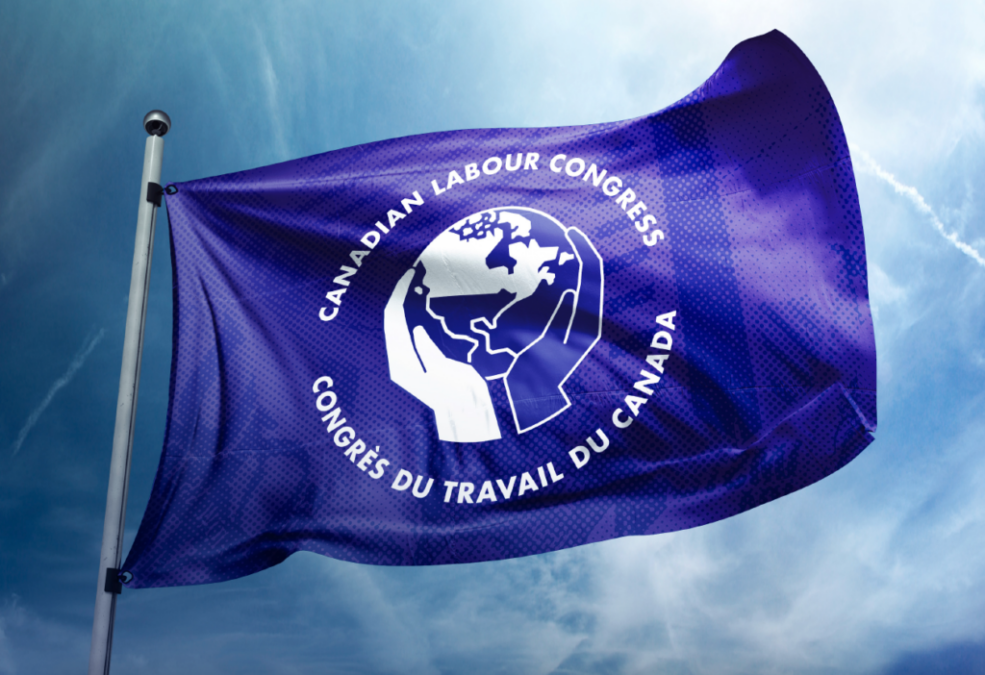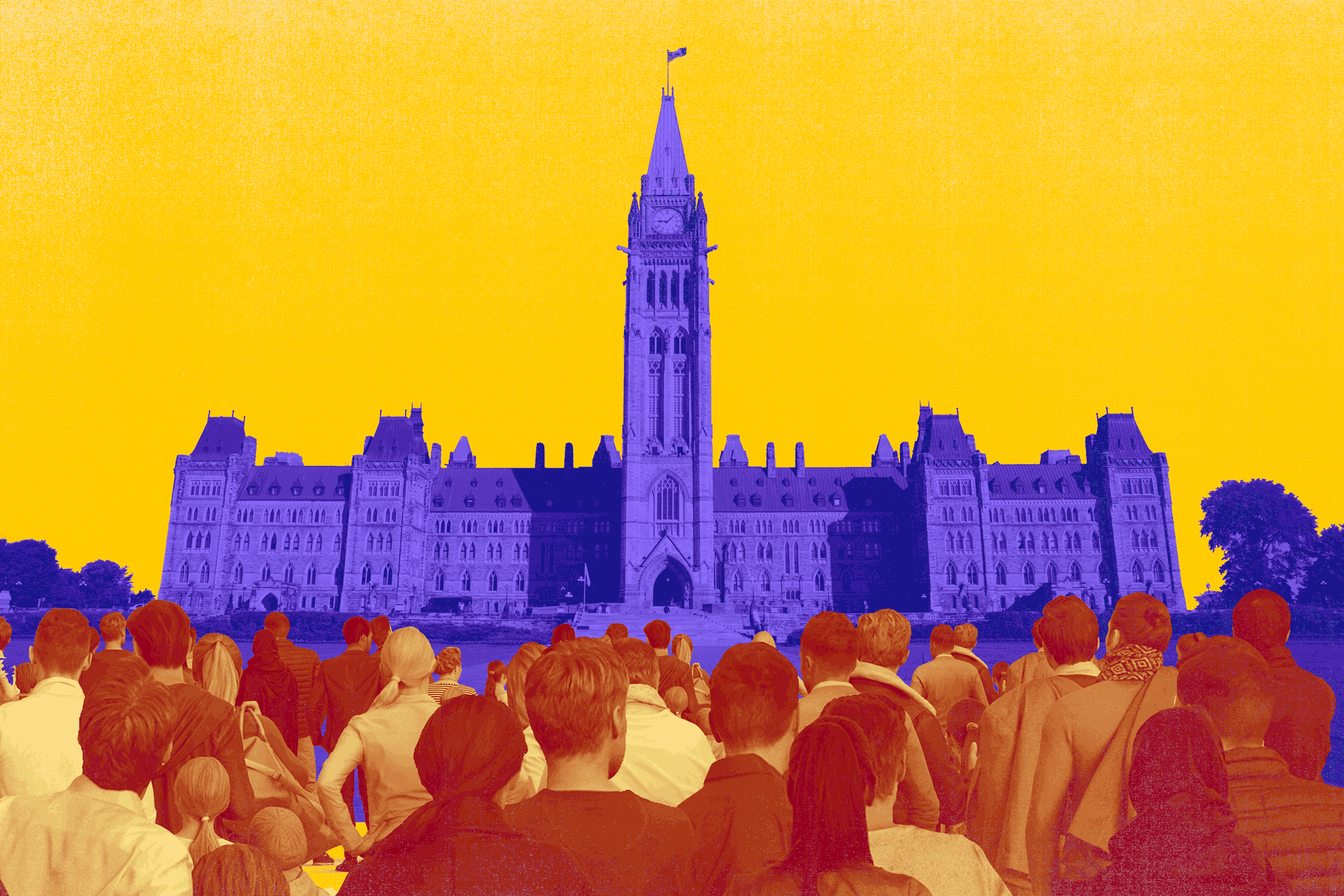
It’s time to end gender-based violence at work
A call centre worker receives a torrent of verbal abuse while helping a customer. A nurse returns from work with bruises and torn scrubs after being attacked by an agitated patient. A barista is stalked by a regular customer. These stories are a daily reality for many workers across Canada–and unfortunately, current worker protections fall short.
For the past three decades, during the 16 Days of Activism against Gender-Based Violence, individuals and groups around the world have called for the prevention and elimination of all forms of gender-based violence against women and girls.
This year, we are casting a light on the disturbing and growing phenomenon of third-party harassment and violence in the world of work.
A recent survey by the Canadian Labour Congress paints a horrifying picture. Seven in ten workers have experienced harassment and violence at work in the past two years–often at the hands of third parties such as customers, patients, and members of the public. That’s the majority of us, and the people we work with. Women and gender-diverse workers are at higher risk of third-party violence because they dominate public-facing jobs.
It’s high time for the federal government to wake up and say ‘never again’ to violence and harassment at work.
The scale and scope of violence are staggering. Last July, a Canadian Union of Public Employees (CUPE) poll demonstrated that the pandemic and never-before-seen hospital staff shortages led to a surge in physical and sexual violence from patients and members of the public against women, who make up 85 per cent of the hospital workforce. The numbers are troubling, particularly for racialized workers, with over 70 per cent saying they are subject to harassment or abuse because of their race or appearance.
For five years now, the United Steelworkers have been drawing attention to the harassment of call-centre workers by customers. Some employers had a no-hang-up policy, leaving workers with no way to escape the harassment. The abuse was often sexual and racist when the workers’ voices were identified as female or racialized.
Widespread verbal and physical violence is known to be a critical factor in the erosion of nurses’ well-being. The Canadian Federation of Nurses Unions (CFNU) states that decades-old cycles of gender-based harassment and violence have led to a serious decline in nurses’ health, including mental health. These are the same nurses who spent the past two years on the frontline, caring for us, our family members and our friends.
Another recent survey from SEIU (Canada’s Healthcare Union) paints a grim picture. 4 out of 6 home care workers said they regularly experience verbal assault, 2 out of 5 said they were punched, and 1-in-4 experienced sexual assault while delivering care at a client’s home. These workers are some of the lowest-paid healthcare workers and they are also subject to some of the highest rates of workplace violence outside the walls of big institutional care settings.
Violence and harassment happen in all corners of the workforce. University of Ottawa researchers found that over half of the educators surveyed experienced physical violence during the 2017-2018 school year–overwhelmingly at the hands of students. More than 70 per cent reported acts of explicit verbal insults, putdowns, and obscene gestures from a student and 41 per cent experienced this sort of behaviour from a parent.
In public-facing workplaces, such as retail and hospitality, the rates of violence and harassment are alarming. 90 per cent of respondents of a United Food and Commercial Workers (UFCW) survey said they have experienced harassment in their workplaces. Another crushing example from Unite Here Local 40 revealed that more than two-thirds of women workers at one Vancouver hotel had been subjected to sexual harassment from guests.
As you can imagine, workers report feeling stressed, and worthless, and some are even forced to leave their jobs. Few legal protections exist against third-party violence, which leaves workers vulnerable to harm. No one should have to feel unsafe when doing their job.
There is hope. In 2019, the International Labour Organization (ILO) Convention No. 190, also known as C190, was deemed a historic convention which would establish the right to a world of work free from violence and harassment. We are still waiting for the government to ratify C190 and take this step toward addressing third-party and gender-based violence at work.
However, without an implementation plan, the legislation will fall short. As a first step, Canada’s unions are calling on the federal government to host a summit bringing other levels of governments, employers and unions together to examine third-party violence as a persistent and escalating phenomenon.
We are ready to roll up our sleeves to work with governments and employers to develop an action plan to implement C190.
Whether you are a call centre worker answering our questions, a nurse caring for our loved ones, or a barista fuelling us with coffee, everyone has the right to feel safe at work. Let’s make it a reality.
- Bea Bruske, President, Canadian Labour Congress
- Linda Silas – President, Canadian Federation of Nurses Unions
- Sharleen Stewart – President, SEIU
- Chris Aylward – Public Service Alliance of Canada
- Daniel Boyer – Fédération des travailleurs et travailleuses du Québec
- Marc Hancock – Canadian Union on Public Employees
- Paul R. Meinema – United Food and Commercial Workers
- Bert Blundon – National Union of Public General Employees
- John Di Nino – Amalgamated Transit Union Canada
- Marty Warren – United Steelworkers
-30-
Bea Bruske is president of the Canadian Labour Congress. Follow her on Twitter @PresidentCLC
To arrange an interview, please contact:
CLC Media Relations
media@clcctc.ca
613-526-7426








